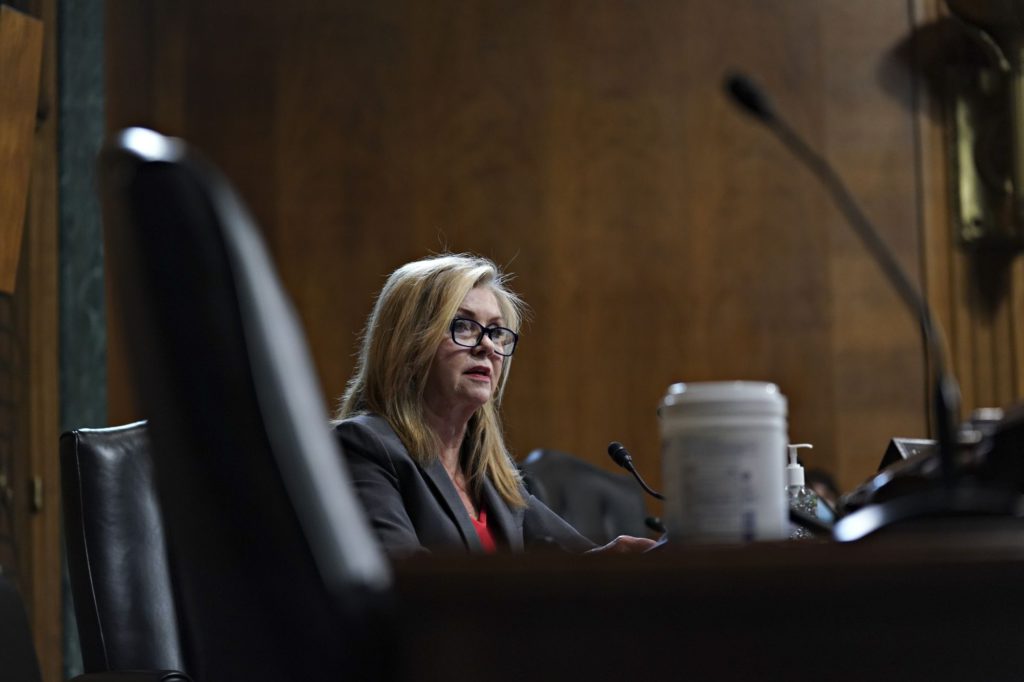(Bloomberg) — Facebook Inc. is facing renewed fury from Washington after reports suggested the company knew, but didn’t disclose, that its Instagram platform could pose risks to teenagers.
The report from the Wall Street Journal citing Facebook’s own internal research gives fuel to politicians who have pledged to hold social media companies accountable for their impact on mental health, civil discourse and democracy. While previous rounds of outrage over issues such as the Cambridge Analytica privacy scandal haven’t dented Facebook’s business model or profitability, this backlash could bring Chief Executive Officer Mark Zuckerberg and other company executives back to testify before Congress about the shortcomings.
U.S. Senators Richard Blumenthal, a Connecticut Democrat, and Marsha Blackburn, a Republican from Tennessee, the chair and ranking member of the Senate consumer protection subcommittee, said they have been in contact with a Facebook whistle-blower and “will use every resource at our disposal to investigate what Facebook knew and when they knew it.”
The senators said Tuesday they planned to seek further documents and speak with witnesses as part of the investigation. The Senate Commerce Committee has the power to issue subpoenas for records and witness testimony.
“It is clear that Facebook is incapable of holding itself accountable,” the senators said. “The Wall Street Journal’s reporting reveals Facebook’s leadership to be focused on a growth-at-all-costs mindset that valued profits over the health and lives of children and teens.”
When asked about the Journal articles Wednesday, White House Press Secretary Jen Psaki said President Joe Biden thinks there are “serious issues around how much power internet platforms have amassed in our society and certainly some of that reporting is an example of that.”
Tech giants, including Facebook, have been under increasing pressure from lawmakers questioning how companies handle user data, protect user safety and expand their market share and influence. While legislation aimed at regulating content moderation and privacy practices have stalled, there is momentum for antitrust measures that take aim at the companies’ size and dominance.
A spokesperson for Colorado Representative Ken Buck, the ranking Republican on the House antitrust subcommittee, said the recent revelations about Facebook underscore why legislation is needed to curb the power of dominant tech firms.
“Because Big Tech operates with almost unchecked power and answers only to themselves, it is not surprising they continue to peddle their products to children even though they are aware of the massive negative consequences children experience from engaging with their sites,” Buck spokesman Nick Givas told Bloomberg.
A Facebook spokesperson referred to an earlier blog post from Karina Newton, Instagram’s head of public policy, about what internal and external research found regarding social media’s impact on young people.
“The question on many people’s minds is if social media is good or bad for people,” Newton wrote. “The research on this is mixed; it can be both. At Instagram, we look at the benefits and the risks of what we do.”
Lawmakers from both parties previously raised concerns about tech’s impact on young people. Washington Representative Cathy McMorris Rodgers, the ranking Republican on the House Energy and Commerce Committee, opened a March hearing with Zuckerberg and other tech executives by saying their platforms are her “biggest fear as a parent” — a complaint she echoed Tuesday.
McMorris Rodgers and other House Republicans wrote to Facebook after that March hearing to request the company’s internal research on the impact its platforms have on mental health. She said the company didn’t comply, “and we now know why.”
“We will continue to demand transparency from Facebook and other Big Tech companies, especially as it relates to the harm their products have on our children,” McMorris Rodgers said Wednesday. “Parents deserve the truth.”
Senator Ed Markey, a Massachusetts Democrat, on Wednesday sent a letter to Zuckerberg asking if he was personally aware of the internal research that showed mental health risks and requesting copies of those studies. The letter, also signed by Democratic Representatives Kathy Castor of Florida and Lori Trahan of Massachusetts, demands that Facebook abandon plans to create an Instagram for children and gives the company until Oct. 6 to respond.
The Journal story focuses on the mental health risks such as anxiety and depression for young people, especially girls, who use Instagram, the photo-sharing app. The article references a letter that Blumenthal and Blackburn sent to Facebook last month seeking more information on how the company’s internal research informs products designed for children and teens.
But Facebook’s reply to the senators didn’t include the company study detailed in the article.
“When given the opportunity to come clean to us about their knowledge of Instagram’s impact on young users, Facebook provided evasive answers that were misleading and covered up clear evidence of significant harm,” the senators said.
(Updates with comments from White House press secretary in sixth paragraph)
More stories like this are available on bloomberg.com
©2021 Bloomberg L.P.











